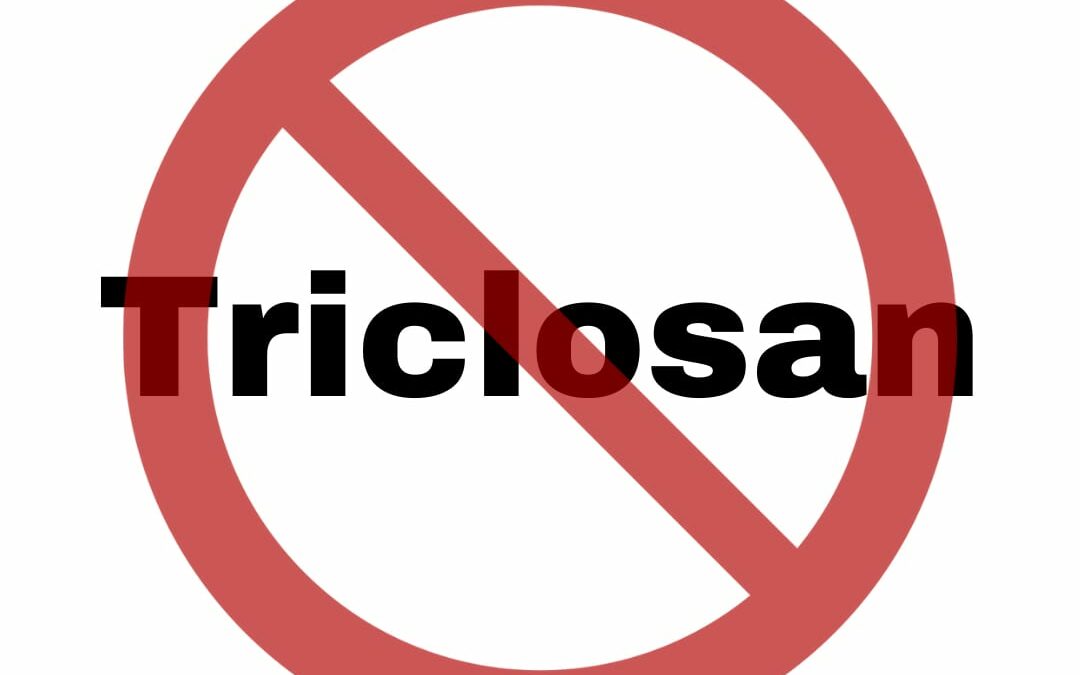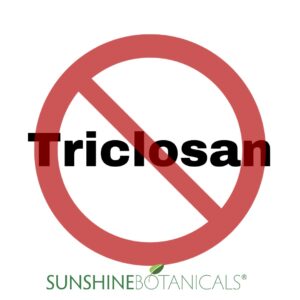Triclosan kills germs, but at what expense? The truth is disturbing. In the 1970s, the FDA was on the verge of banning the antibacterial from specific topical products, but it slid through the cracks and grew in availability because of its efficacy at battling bacteria. However, the concerns about its safety for people and planet did not disappear.
There are a number of reasons to avoid any topical applications of triclosan. Studies have shown that triclosan acts as an endocrine disruptor, meaning that it can dysregulate hormone balance, causing a huge range of serious health problems from infertility to cognitive changes. Research on animals has shown that triclosan may contribute to thyroid imbalance as well. It also encourages the rise of drug-resistant bacteria or ‘superbugs’ which are not destroyed by typical antibacterial formulas and represent a significant threat in modern

